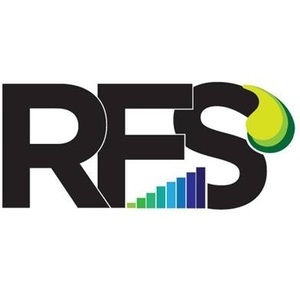Biofuel groups ask EPA to resist calls for RFS waivers

June 17, 2021
BY Erin Krueger
Fuels America, National Farmers Union, Growth Energy, Renewable Fuels Association, National Corn Growers Association, National Biodiesel Board, and Advanced Biofuels Business Council on June 17 sent a letter to U.S. EPA Administrator Michael Regan and National Economic Council Director Brian Deese urging them to resist calls by the oil industry to waive or weaken the Renewable Fuel Standard.
“The oil refiners seeking a waiver have chosen – for more than a decade – to purchase RIN credits in lieu of blending renewable fuels,” the groups wrote. “They are gambling that a perceived threat to union jobs will compel the administration to back away from enforcing the law. However, the Environmental Protection Agency (EPA) has repeatedly found that merchant refiners ‘are generally able to recover the cost of RINs in the prices they receive for their refined products, and therefore high RIN prices do not cause significant harm to refiners.’ In effect, refiners publicly label RIN prices as a cost, while privately collecting RIN revenues from outgoing products.”
The biofuel groups encourage Biden administration officials to “take a hard look at oil refinery earnings reports and East Coast refining margins to fully appreciate the truth behind false claims of economic hardship.” The letter offers PBF Energy has an example, noting the company reported a significant increase in operating income for the first quarter of 2021 when compared to the same period of 2020 despite claims that RIN exposure during that time period created economic hardship. “RINs have no net impact on refinery earnings,” the groups wrote.
Advertisement
“Oil refiners claiming hardship are using the RFS as a scapegoat for unrelated executive actions to appease dissatisfied investors,” they continued. “For example, the Monroe Energy (Delta Airlines) refinery is struggling, but not because of the RFS. Refinery executives admitted in an internal memorandum that it has sacrificed profits at the refinery to boost profits at the airline, ‘acting against its own financial interest to try to maintain lower jet fuel prices and save the nation’s second-largest airline money on fuel, its top operating expense.’”
“Philadelphia Energy Solutions (PES) also blamed the RFS for threatening union jobs,” the groups added. “However, it was later uncovered that private equity investors in the refinery were simultaneously cutting worker pensions and health benefits, taking out operating loans against the refinery, ultimately directing over $600 million to the same outside investors funding a pipeline that cut off the facility from cheap crude oil – all while liquidating RINs needed for compliance before declaring bankruptcy.”
Advertisement
The letter stresses that the American biofuel industry is one of the largest employers in the renewable energy sector and discusses the impact RFS waivers would have on those rural jobs and the nation’s decarbonization efforts.
“The American biofuel industry stands at the ready to help decarbonize liquid fuels, support domestic manufacturing jobs, and revitalize the U.S. economy with clean energy,” the groups wrote. “Holding strong on the RFS is an indispensable part of that mission.”
A full copy of the letter can be downloaded from the Fuels America website.
Related Stories
The U.S. Energy Information Administration maintained its forecast for 2025 and 2026 biodiesel, renewable diesel and sustainable aviation fuel (SAF) production in its latest Short-Term Energy Outlook, released July 8.
XCF Global Inc. on July 10 shared its strategic plan to invest close to $1 billion in developing a network of SAF production facilities, expanding its U.S. footprint, and advancing its international growth strategy.
U.S. fuel ethanol capacity fell slightly in April, while biodiesel and renewable diesel capacity held steady, according to data released by the U.S. EIA on June 30. Feedstock consumption was down when compared to the previous month.
XCF Global Inc. on July 8 provided a production update on its flagship New Rise Reno facility, underscoring that the plant has successfully produced SAF, renewable diesel, and renewable naphtha during its initial ramp-up.
The U.S. EPA on July 8 hosted virtual public hearing to gather input on the agency’s recently released proposed rule to set 2026 and 2027 RFS RVOs. Members of the biofuel industry were among those to offer testimony during the event.
Upcoming Events










